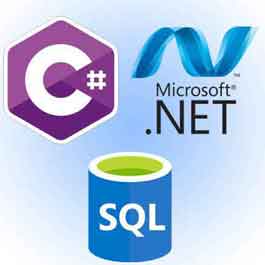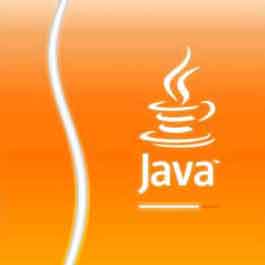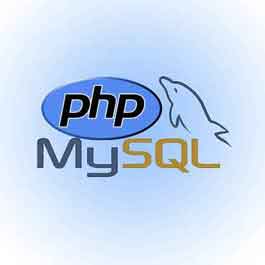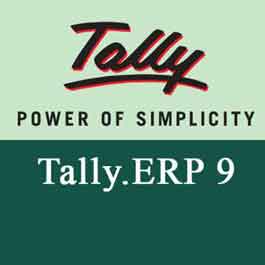Hadoop and Big Data training in pune pimpri chinchwad (c'wad) , Hadoop and Big Data training institutes in chinchwad ,Hadoop and Big Data app development in c,wad, best Hadoop and Big Data app development Pune, Hadoop and Big Data application development courses, best Hadoop and Big Data training institute, Hadoop and Big Data training courses, Hadoop and Big Data courses, best Hadoop and Big Data training institute in pune , Hadoop and Big Data App Development Classes in Pune,Best Hadoop and Big Data classes in Pune,Hadoop and Big Data courses in Pune, Best Hadoop and Big Data Courses in Pune , Hadoop and Big Data App Development Classes in Pune, Best Hadoop and Big Data classes in Pune, Hadoop and Big Data courses in Pune, Best Hadoop and Big Data Courses in Pune
Hadoop and Big Data Training Pune
Hadoop and Big Data
Big Data Introduction
- What is Big Data
- Evolution of Big Data
- Benefits of Big Data
- Operational vs Analytical Big Data
- Need for Big Data Analytics
- Big Data Challenges
Hadoop cluster
- Master Nodes
- Name Node
- Secondary Name Node
- Job Tracker
- Client Nodes
- Slaves
- Hadoop configuration
- Setting up a Hadoop cluster
HDFS
- Introduction to HDFS
- HDFS Features
- HDFS Architecture
- Blocks
- Goals of HDFS
- The Name node & Data Node
- Secondary Name node
- The Job Tracker
- The Process of a File Read
- How does a File Write work
- Data Replication
- Rack Awareness
- HDFS Federation
- Configuring HDFS
- HDFS Web Interface
- Fault tolerance
- Name node failure management
- Access HDFS from Java
Yarn
- Introduction to Yarn
- Why Yarn
- Classic MapReduce v/s Yarn
- Advantages of Yarn
- Yarn Architecture
- Resource Manager
- Node Manager
- Application Master
- Application submission in YARN
- Node Manager containers
- Resource Manager components
- Yarn applications
- Scheduling in Yarn
- Fair Scheduler
- Capacity Scheduler
- Fault tolerance
MapReduce
- What is MapReduce
- Why MapReduce
- How MapReduce works
- Difference between Hadoop 1 & Hadoop 2
- Identity mapper & reducer
- Data flow in MapReduce
- Input Splits
- Relation Between Input Splits and HDFS Blocks
- Flow of Job Submission in MapReduce
- Job submission & Monitoring
- MapReduce algorithms
- Sorting
- Searching
- Indexing
- TF-IDF
Hadoop Fundamentals
- What is Hadoop
- History of Hadoop
- Hadoop Architecture
- Hadoop Ecosystem Components
- How does Hadoop work
- Why Hadoop & Big Data
- Hadoop Cluster introduction
- Cluster Modes
- Standalone
- Pseudo-distributed
- Fully - distributed
- HDFS Overview
- Introduction to MapReduce
- Hadoop in demand
HDFS Operations
- Starting HDFS
- Listing files in HDFS
- Writing a file into HDFS
- Reading data from HDFS
- Shutting down HDFS
HDFS Command Reference
- Listing contents of directory
- Displaying and printing disk usage
- Moving files & directories
- Copying files and directories
- Displaying file contents
Java Overview For Hadoop
- Object oriented concepts
- Variables and Data types
- Static data type
- Primitive data types
- Objects & Classes
- Java Operators
- Method and its types
- Constructors
- Conditional statements
- Looping in Java
- Access Modifiers
- Inheritance
- Polymorphism
- Method overloading & overriding
- Interfaces
MapReduce Programming
- Hadoop data types
- The Mapper Class
- Map method
- The Reducer Class
- Shuffle Phase
- Sort Phase
- Secondary Sort
- Reduce Phase
- The Job class
- Job class constructor
- JobContext interface
- Combiner Class
- How Combiner works
- Record Reader
- Map Phase
- Combiner Phase
- Reducer Phase
- Record Writer
- Partitioners
- Input Data
- Map Tasks
- Partitioner Task
- Reduce Task
- Compilation & Execution
Hadoop Ecosystems
Pig
- What is Apache Pig
- Why Apache Pig
- Pig features
- Where should Pig be used
- Where not to use Pig
- The Pig Architecture
- Pig components
- Pig v/s MapReduce
- Pig v/s SQL
- Pig v/s Hive
- Pig Installation
- Pig Execution Modes & Mechanisms
- Grunt Shell Commands
- Pig Latin - Data Model
- Pig Latin Statements
- Pig data types
- Pig Latin operators
- CaseSensitivity
- Grouping & Co Grouping in Pig Latin
- Sorting & Filtering
- Joins in Pig latin
- Built-in Function
- Writing UDFs
- Macros in Pig
HBase
- What is HBase
- History Of HBase
- The NoSQL Scenario
- HBase & HDFS
- Physical Storage
- HBase v/s RDBMS
- Features of HBase
- HBase Data model
- Master server
- Region servers & Regions
- HBase Shell
- Create table and column family
- The HBase Client API
Spark
- Introduction to Apache Spark
- Features of Spark
- Spark built on Hadoop
- Components of Spark
- Resilient Distributed Datasets
- Data Sharing using Spark RDD
- Iterative Operations on Spark RDD
- Interactive Operations on Spark RDD
- Spark shell
- RDD transformations
- Actions
- Programming with RDD
- GraphX overview
Impala
- Introducing Cloudera Impala
- Impala Benefits
- Features of Impala
- Relational databases vs Impala
- How Impala works
- Architecture of Impala
- Components of the Impala
- Query Processing Interfaces
- Impala Shell Command Reference
- Impala Data Types
- Creating & deleting databases and tables
- Inserting & overwriting table data
- Record Fetching and ordering
- Grouping records
- Using the Union clause
- Working of Impala with Hive
- Impala v/s Hive v/s HBase
MongoDB Overview
- Introduction to MongoDB
- MongoDB v/s RDBMS
- Why & Where to use MongoDB
- Databases & Collections
- Inserting & querying documents
- Schema Design
- CRUD Operations
Oozie & Hue Overview
- Introduction to Apache Oozie
- Oozie Workflow
- Oozie Coordinators
- Property File
- Oozie Bundle system
- CLI and extensions
- Overview of Hue
Hive
- What is Hive
- Features of Hive
- The Hive Architecture
- Components of Hive
- Installation & configuration
- Primitive types
- Complex types
- Built in functions
- Hive UDFs
- Views & Indexes
- Hive Data Models
- Hive vs Pig
- Co-groups
- Importing data
- Hive DDL statements
- Hive Query Language
- Data types & Operators
- Type conversions
- Joins
- Sorting & controlling data flow
- local vs mapreduce mode
- Partitions
- Buckets
Sqoop
- Introducing Sqoop
- Scoop installation
- Working of Sqoop
- Understanding connectors
- Importing data from MySQL to Hadoop HDFS
- Selective imports
- Importing data to Hive
- Importing to Hbase
- Exporting data to MySQL from Hadoop
- Controlling import process
Flume
- What is Flume
- Applications of Flume
- Advantages of Flume
- Flume architecture
- Data flow in Flume
- Flume features
- Flume Event
- Flume Agent
- Log Data in Flume
Zookeeper Overview
- Zookeeper Introduction
- Distributed Application
- Benefits of Distributed Applications
- Why use Zookeeper
- Zookeeper Architecture
- Hierarchial Namespace
- Znodes
- Stat structure of a Znode
- Electing a leader
Kafka Basics
- Messaging Systems
- What is Kafka
- Kafka Benefits
- Kafka Topics & Logs
- Partitions in Kafka
- Brokers
- Producers & Consumers
- What are Followers
- Kafka Cluster Architecture
- Kafka as a Pub-Sub Messaging
- Kafka as a Queue Messaging
- Role of Zookeeper
- Basic Kafka Operations
- Integration With Spark
Scala Basics
- Introduction to Scala
- Spark & Scala interdependence
- Objects & Classes
- Class definition in Scala
- Creating Objects
- Scala Traits
- Basic Data Types
- Operators in Scala
- Control structures
- Fields in Scala
- Functions in Scala
- Collections in Scala
Course Features
- Lectures 45
- Quizzes 3
- Duration 45 hours
- Skill level All level
- Language English
- Students 45
- Certificate Yes
- Assessments Self
-
Hadoop and Big Data
- Unit 1.1 Big Data Introduction
- Unit 1.2 Hadoop cluster
- Unit 1.3 HDFS
- Unit 1.4 Yarn
- Unit 1.5 MapReduce
- Unit 1.6 Hadoop Fundamentals
- Unit 1.7 HDFS Operations
- Unit 1.8 HDFS Command Reference
- Unit 1.9 Java Overview For Hadoop
- Unit 1.10 MapReduce Programming
Hadoop Ecosystems
- Unit 2.1 Pig
- Unit 2.2 HBase
- Unit 2.3 Spark
- Unit 2.4 Impala
- Unit 2.5 MongoDB Overview
- Unit 2.6 Oozie & Hue Overview
- Unit 2.7 Hive
- Unit 2.8 Sqoop
- Unit 2.9 Flume
- Unit 2.10 Zookeeper Overview
- Unit 2.11 Kafka Basics
- Unit 2.12 Scala Basics
-
Ashok Mane
BCS
Pallavi Sharma is a very good teacher. She taught us what is the Hadoop and Big Datatechnology and how we can handle it. And also we have learned that while developing an Hadoop and Big Data application how to manage the memory.
-
Pritam Patil
MBA
Robert Abraham is having some what extra qualities of teaching the subject Hadoop and Big Data . His teaching since is very good we can understand it very well. He taught us the main thing in Hadoop and Big Data Technology is security and Privacy.
-
Vina More
MCS
Rupesh Patil is the best teacher. He taught us how we can use the virtual reality in the Hadoop and Big Data application and many other interfaces And after developing the application how to test the Hadoop and Big Data application.
-
Sonal Patil
BE
Sonali Madam is a very good teacher. She taught us how we can update the schedule in Hadoop and Big Data application and also how we can create a single page application in Hadoop and Big Data.








